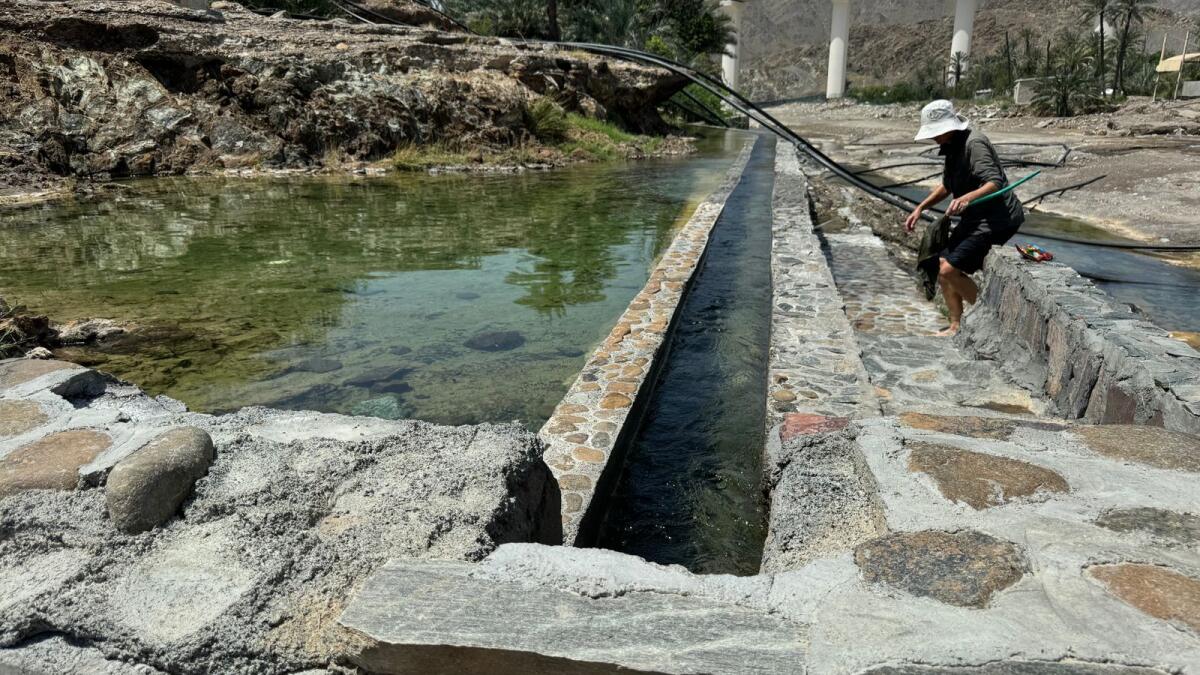A restored Falaj system in Bithnah is boosting agricultural production and reducing water usage thanks to a project by Emirates Nature-WWF and Etihad Rail. The system, which was previously broken and unused, now irrigates eight farms in the area without the need for external forces like machines to pump water. This sustainable operation is essential during the harsh summer months when water is pumped from a nearby well and transported to the Falaj pipes.
Bithnah, located on an ancient trade route near the Wadi Ham, has a rich history of connecting communities from Asia, Europe, and Africa. The restoration project not only benefits local farmers but also aims to empower the community by involving them in the development process. Through education on modern farming techniques and a focus on reducing water wastage, farmers have been able to cut down their water consumption by up to 20 percent.
In addition to agricultural improvements, the project also focuses on promoting ecotourism in the area by developing hiking trails and preserving the historic sites. By encouraging local farmers to plant Moringa trees, a new income source is created through the production of Moringa oil. This sustainable resource ensures a steady source of income for the community in the future.
The recent cleaning of the Falaj system after heavy rains and flooding demonstrates the commitment of volunteers, including 12-year-old Charlie, who actively participates in various community projects. By engaging volunteers of all ages, the project not only ensures the maintenance of the restored Falaj but also fosters a sense of community involvement and responsibility among residents. With ongoing efforts to promote sustainable practices and empower local communities, the restoration project in Bithnah serves as a model for conservation and development initiatives in the region.











